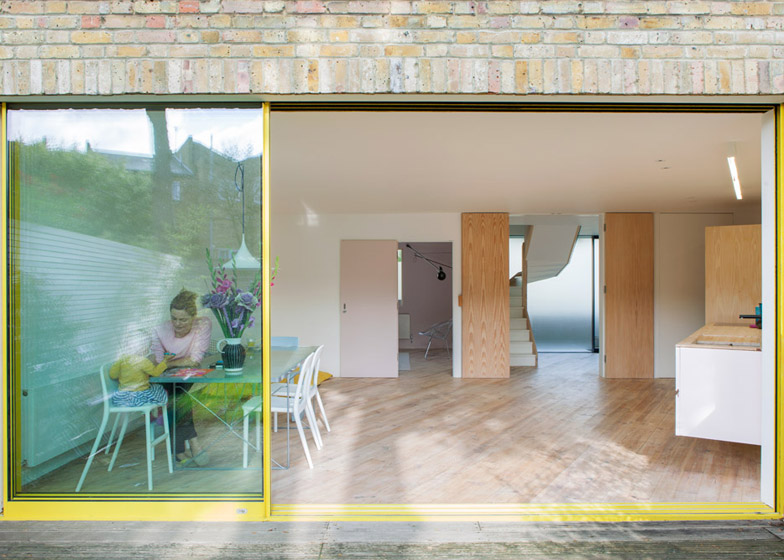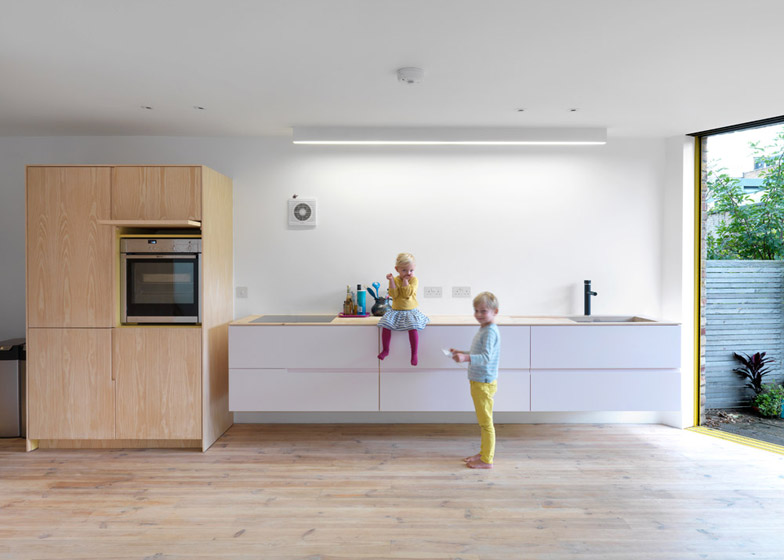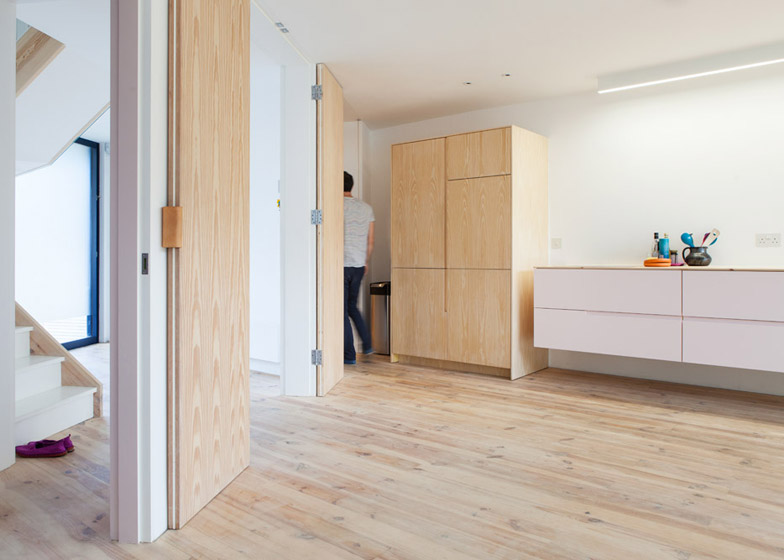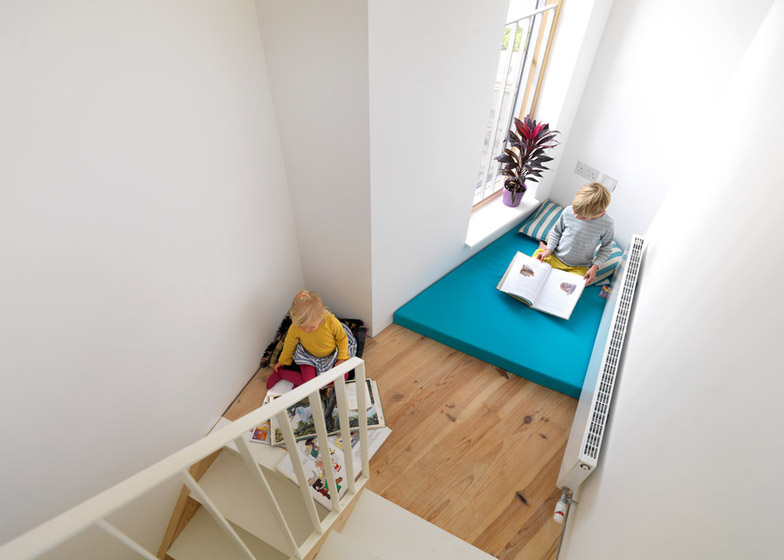The upper storey of this brick extension to a mid-century home in north London by Lipton Plant Architects projects over the entrance to form a porch (+ slideshow).
London-based studio Lipton Plant Architects extended and reconfigured the interior space of a 1957 semi-detached house built on a wedge-shaped site in Stoke Newington.
The two-storey addition comprises a living area across the ground floor, four upper-storey bedrooms and a wooden staircase with a faceted underside that connects the two levels.
Large panes of frosted glass beneath the overhanging upper storey provide entrance points from the street, while similar full-height sliding windows with thin yellow surrounds open onto the back garden.
The front doors, which feature blue frames on the inside, slide open onto a hallway with white walls and an oiled pine floor. Directly ahead, a pair of floor-to-ceiling wooden doors lead into the kitchen.
"The double doors open to reveal the rear space and the full width expanse of glass in thin yellow frames," said studio director Edward Lipton, whose previous projects in north London include an extension with a glass walk-on roof.
Inside the kitchen, a raised unit that runs along the wall kitchen with an oiled pine worktop "hovers above the ground adding to the sense of space and openness."
Further utilities are enclosed in a wooden cabinet with hatches that can be propped open or closed to reveal or conceal the oven and fridge.
"A tall unit cleverly designed to incorporate the white goods and conceal the oven allows the kitchen to be closed off," Lipton told Dezeen.
Back in the hallway, single wooden doors to either side of the kitchen lead to a bathroom and living room in the old part of the house.
Floorboards in the older half of the property were sanded back and oiled to blend with the new space, while the original skirting boards and architraves were "designed out" to give a more modern finish.
A timber-framed staircase made from oiled pine with white painted treads connects from the hallway of the ground floor to the upper level.
"The soffit is faceted to wind around the underside and reflects the shape of the building and the cantilever to the front," said the architect.
Four bedrooms and a bathroom cluster round a spacious hallway on the second level. Beyond the bedrooms, the staircase leads to a "den" on an oversized landing with a bright turquoise cushion used to cover the floor.






